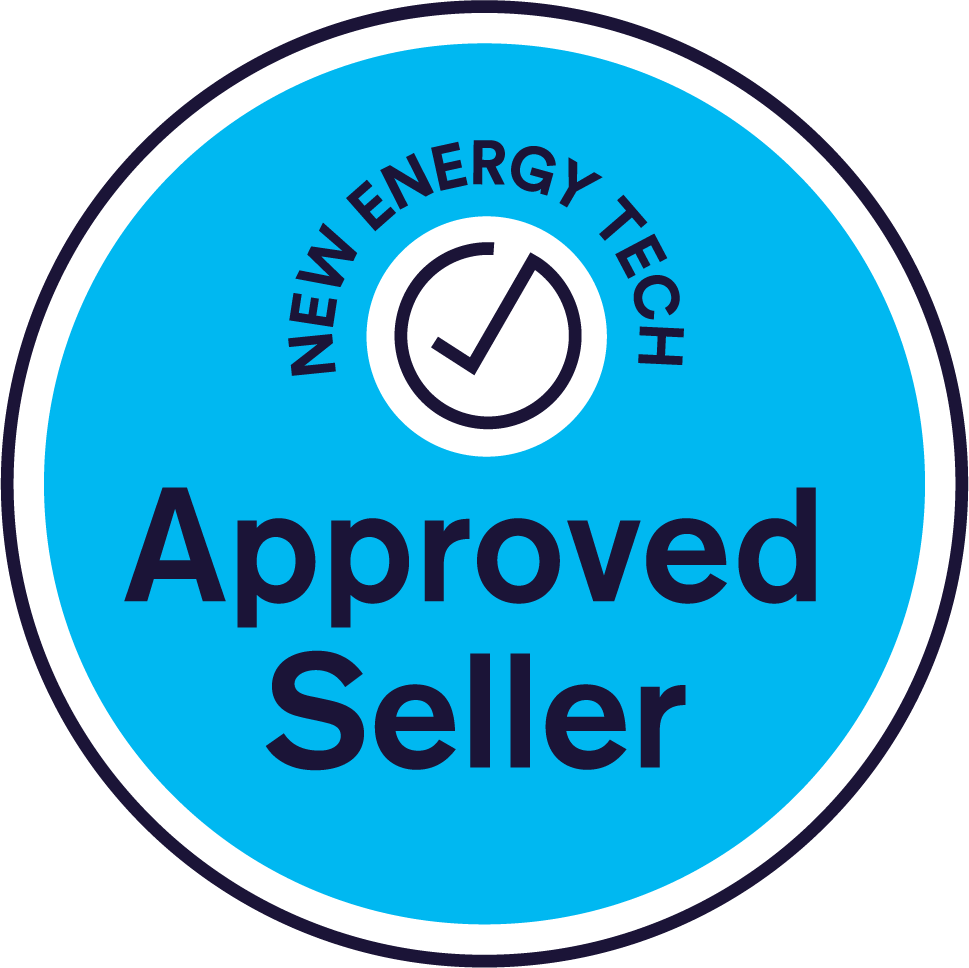When deciding between a heat pump and solar hot water, consider the climate, energy efficiency, and initial cost. Both systems can provide sustainable and cost-effective hot water solutions for residential and commercial properties.
A heat pump extracts heat from the air and transfers it to the water, making it an efficient option in moderate climates. On the other hand, solar hot water systems use the sun's energy to heat water, offering an environmentally friendly choice in sunny regions.
We will explore the differences between heat pumps and solar hot water in terms of efficiency, installation, maintenance, and long-term cost-effectiveness.
Heat Pump Vs Solar Hot Water: Efficiency Face-off
When it comes to energy-efficient water heating solutions, both heat pumps and solar hot water systems have their strengths and limitations. In this efficiency face-off, we'll delve into the benefits and limitations of each technology and key considerations, such as climate and location, to help you make an informed decision for your home.
Benefits And Limitations Of Heat Pumps
Heat pumps are known for their high energy efficiency and versatility. They can extract heat from the surrounding air, making them efficient even in colder climates. The benefits and limitations of heat pumps are summarized below:
Benefits And Limitations Of Solar Hot Water Systems
Solar hot water systems harness the sun's energy to heat water, providing an eco-friendly and cost-effective solution. Here are the benefits and limitations of solar hot water systems:
Key Considerations: Climate And Location
Climate and location play a crucial role in determining the suitability of heat pumps or solar hot water systems. In regions with ample sunlight, solar hot water systems can be highly efficient. Conversely, heat pumps can provide consistent performance across various climates, making them a versatile option.
Decoding Heat Pump Technology
Working Principle Of Heat Pumps
A heat pump is a device that utilizes a small amount of energy to move heat from one location to another. It works on the principle of transferring heat, rather than converting it from a fuel like a traditional boiler. Heat pumps are designed to extract low-grade heat from the environment, amplify it, and transfer it to a different location either for heating or cooling purposes.
Types Of Heat Pumps Common In Households
There are three main types of heat pumps commonly used in households:
Air Source Heat Pumps: These types of heat pumps extract heat from the outside air. They work efficiently in moderate climates and are quite popular due to their relative affordability and easy installation.
Ground Source Heat Pumps: Also known as geothermal heat pumps, these systems extract heat from the ground or groundwater. They are highly efficient but are more expensive to install compared to air source heat pumps.
Water Source Heat Pumps: These heat pumps extract heat from a water source, such as a lake or a well, and are commonly used in areas with access to such water bodies.
Solar Hot Water Systems Unveiled
Solar hot water systems have gained popularity for their energy-efficient and environmentally friendly nature. Understanding how these systems operate and the various configurations available can help you make an informed decision when choosing a hot water solution for your home. Let's delve into the details of solar hot water systems to discover how they can benefit your household.
How Solar Hot Water Systems Operate
Solar hot water systems utilize the energy from the sun to heat water for residential or commercial use. The basic operational principle involves the use of solar collectors to harness sunlight and convert it into thermal energy, which is then transferred to the water in a storage tank. This process eliminates the need for traditional heating methods and significantly reduces energy consumption and utility costs.
Different Configurations Of Solar Water Heating Setups
There are several configurations of solar water heating setups, each offering distinct advantages based on specific requirements. These configurations include:
Direct Active Systems: Direct circulation systems pump water through the solar collectors, where it is heated, then transferred to the storage tank.
Indirect Active Systems: Indirect circulation systems use a heat exchanger to transfer the heat from the solar collectors to the water in the storage tank, allowing for use in regions with freezing temperatures.
Passive Systems: Passive systems rely on gravity and natural circulation to transfer and heat the water, eliminating the need for pumps or controls.
Each of these configurations has its own set of advantages and can be tailored to suit different geographical locations and climate conditions, making solar hot water systems a versatile and sustainable option for households worldwide.
Cost Analysis: Heat Pump And Solar Hot Water
The cost analysis between heat pumps and solar hot water systems is a crucial aspect to consider when deciding on the most efficient and cost-effective option for your household. Let’s delve deeper into the initial setup and installation costs, long-term operational costs comparisons, and the potential savings and return on investment associated with both heat pumps and solar hot water systems.
Initial Setup And Installation Costs
When comparing the initial setup and installation costs for heat pumps and solar hot water systems, it’s essential to consider the expense involved in purchasing the equipment and the labor required for installation. Heat pumps typically have a lower initial capital outlay compared to solar hot water systems due to the equipment cost and installation complexity. On the other hand, solar hot water systems involve higher upfront costs primarily attributed to the purchase of solar collectors, storage tanks, and installation expenses.
Long-term Operational Costs Comparisons
In terms of long-term operational costs, heat pumps are known for their energy efficiency and require minimal maintenance, leading to lower operational expenses. In contrast to solar hot water systems, which are dependent on sunlight availability, heat pumps guarantee consistent hot water supply regardless of weather conditions. However, solar hot water systems offer the advantage of using renewable energy, translating to reduced energy bills and long-term operational cost savings.
Potential Savings And Return On Investment
When considering potential savings and return on investment, both heat pumps and solar hot water systems present compelling benefits. The operational efficiency of heat pumps translates to lower energy consumption and reduced utility bills, resulting in significant cost savings over time. Solar hot water systems, on the other hand, offer the potential for substantial long-term savings through the utilization of solar energy, contributing to environmental sustainability while providing a return on the initial investment over time.
Maximizing Efficiency In Home Heating
Choosing the right heating system for your home is crucial to ensure maximum efficiency and cost-effectiveness. When comparing heat pumps and solar hot water systems, it's essential to understand how to optimize their performance and harness their benefits to create a comfortable living environment. Here are the best practices for utilizing heat pumps and optimizing solar hot water systems, along with hybrid solutions to enhance home heating efficiency.
Best Practices For Heat Pump Utilization
When incorporating a heat pump into your home heating system, it's important to consider the following best practices:
Choose the Right Size: Ensure the heat pump is appropriately sized for your home to maximize its operational efficiency.
Regular Maintenance: Schedule routine maintenance to keep the heat pump in optimal condition for consistent performance.
Temperature Control: Utilize programmable thermostats to regulate temperature settings and minimize energy consumption.
Optimizing Solar Hot Water System Performance
Enhancing the performance of a solar hot water system involves specific strategies to maximize its efficiency:
Proper Placement: Install solar panels in an area with high sun exposure to maximize solar energy absorption.
Insulation: Ensure proper insulation of the water storage tank and pipes to minimize heat loss and optimize system efficiency.
Regular Monitoring: Frequently monitor and maintain the system to address any potential issues and ensure consistent performance.
Supplemental Systems And Hybrid Solutions
Implementing supplemental systems and hybrid solutions can further enhance home heating efficiency:
Consider integrating a backup heat source, such as a gas or electric heater, to provide additional support during periods of low solar or heat pump performance. This hybrid approach can offer reliable, continuous heating while maximizing energy savings.
Frequently Asked Questions Of Heat Pump Vs Solar Hot Water
Is Heat Pump Better Than Solar Hot Water?
A heat pump is often more efficient than solar hot water, providing consistent hot water in all weather conditions. It's a reliable and cost-effective option for heating water.
What Are The Disadvantages Of A Heat Pump Water Heater?
The disadvantages of a heat pump water heater include higher initial cost and potential noise during operation. It may also struggle in extremely cold climates. Regular maintenance and location considerations are important.
What Are The Disadvantages Of Solar Hot Water?
Solar hot water systems can be expensive to install and may not always be suitable for every location. They can require a lot of maintenance and repair, and may not provide consistent hot water in cloudy weather. Additionally, the initial cost of installation can be a barrier for some.
What Is The Most Efficient Type Of Hot Water System?
The most efficient type of hot water system is a tankless water heater. It heats water on demand, saving energy and space. With no standby heat loss, it provides continuous hot water. Its compact size and long lifespan make it an efficient choice for many households.
Conclusion
In essence, both heat pumps and solar hot water systems offer environmentally friendly solutions for heating water. Each has its own advantages and limitations. It’s important to consider factors such as climate, budget, and available space when choosing between the two options.
Ultimately, the best choice will depend on individual needs and preferences.



